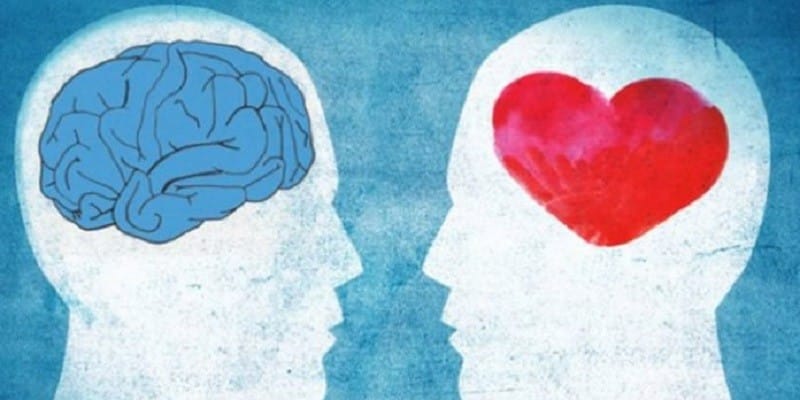Emotional Intelligence Components

Emotional Intelligence Components: this article explains the Emotional Intelligence Components, developed by Daniel Goleman, in a practical way. In addition to the meaning of what it is, the added value of a test is explained. The categories and components of emotional intelligence are also explained. Enjoy reading!
What is Emotional Intelligence?
The American psychologist Daniel Goleman introduced the concept of Emotional Intelligence in 1995.
According to Daniel Goleman a number of factors enable people to understand emotions and self-motivation. Those factors are for example the feeling brain, self-awareness, self-control and enthusiasm.
Emotional Intelligence (EI) is measured by the EQ-index and is a supplement to the traditional IQ. EI also be viewed as a combination of interpersonal and intra-personal intelligence.
Emotional Intelligence test
It is somewhat unclear what an EQ test measures exactly. In broad terms it means that someone with low EQ can be perceived as self-willed and someone with high EQ as ‘adaptive ‘and ‘empathetic’. Important key questions in an EQ test are:
- How does some deal with their own emotions and the emotions of others?
- How does someone respond to situations that cannot be changed?
Emotional Intelligence Components Categories
EI is about a series of non-cognitive abilities, competencies and skills. This combination can ensure that someone may have more chances of being successful, work with a focused approach and can deal with setbacks and pressure from their environment.
Daniel Goleman distinguishes and categorizes a number of components:
1. Intrapersonal (internal)
Emotional awareness
Self-awareness; knowing your own qualities and pitfalls.
Assertiveness
Standing up for yourself while respecting others.
Self-image
Acceptance of your own positive and negative characteristics.
Purposeful
Using talents and opportunities.
Independence
Ability to take independent decisions.
2. Interpersonal (interaction with others)
Empathy
Empathizing with others.
Social responsibility
Respectful towards others.
Problem-solving
Recognizing and analysing of problems.
3. Adaptability (to others)
Realistic
Aware of what is going on.
Flexible
Open to other ideas.
4. Stress management (to environment)
Stress-resistant
Not led by emotion
Impulse control
Suppressing impulse behaviour and the ability to control impulses.
5. General Mood
Optimism
Viewing obstacles as challenges.
Happiness
The ability to feel happy.
Emotional Intelligence Components
According to Daniel Goleman the above categories consist of a number of fixed characteristics.
People who meet those characteristics, are able to listen to others, understand them and have the ability to view obstacles as challenges. The most important Emotional Intelligence components are explained below:
Self-awareness
People with high Emotional Intelligence know their own internal states, they know their strengths and limits and draw their own conclusions.
Therefore, they are better able to retain control over their own lives. An important basis for Emotional Intelligence is that someone is self-aware and can recognize emotions and their effects the moment they occur.
This means that this person will keep their emotions in check and that they look at things in a rational manner. People with a high degree self-knowledge and with a higher level of sensitivity appear to make better informed choices in the areas of for example work, studies and partners.
Optimism and Emotional Intelligence
People with high EQ have a positive attitude towards life, have the ability to motivate themselves and are not easily discouraged.
They use emotions positively to achieve better results. Optimists overcome fears and depression more easily and they do not avoid problems. They view difficult cases as challenges and they postpone impulses until they have achieved their long-term target.
Empathy
Empathy is the ability to sense other people’s feelings, emotions and desires. People with high Emotional Intelligence can put themselves in the situation of others and recognize their emotions.
This is why someone will will feel more at ease with them because they know they are understood. However, empathy does not mean that someone has to agree with their counterpart. It is just about empathy, trust and mutual understanding.
Self-regulation
People with high EI have the ability to focus on something they want to achieve in the long term. They are able to regulate and control their emotions. This self-control ensures that they are not distracted by impulses, that they are ready to act when they see an opportunity and that they are enterprising. They know exactly what they are working for and they pursue their goals.
Social Skills
A good relationship with other people is an important characteristic of EI. People with high Emotional Intelligence have the ability to deal with acquaintances and people they do not know. As they are able to manage their own emotions, they can also manage other people’s emotions.
People with good Social Intelligence skills sense other people’s motives and interests, are good listeners and pleasant conversation partners. They quickly build relationships, are good collaborators and negotiators and they can create group synergy. This makes them popular and of they are often good leaders.
Emotional Intelligence : Decision-making
Decision making revolves around the interplay between emotion and reason. Emotions can have a substantial impact on problem-solving and decision-making.
By recognizing the emotion and using reasoning, people are able to look at a (problematic) situation rationally and take the right decision. Moreover, they will include their past experiences in their decision-making process.
It has been found that people with high Emotional Intelligence are better at this than people with low Emotional Intelligence. People with little empathy who do not recognize their own emotions, are less able to make the right decisions.
They tend not to take responsibility and assign ‘blame’ to others. The core element of Emotional Intelligence is the connection between feeling and thinking. When thinking and feeling are well matched, people will increase their Emotional Intelligence.
It’s Your Turn
What do you think? What is your experience with Emotional Intelligence? Do you recognize the practical explanation of the Emotional Intelligence Components by Daniel Goleman? How do you incorporate this in your personal life?
Share your experience and knowledge in the comments box below.
More information
- Boyatzis, R. E., Goleman, D., & Rhee, K. (2000). Clustering competence in emotional intelligence: Insights from the Emotional Competence Inventory (ECI). Handbook of emotional intelligence, 343-362.
- Goleman, D. (1998). Working with emotional intelligence. Bantam.
- Goleman, D. (1995). Emotional intelligence: Why it can matter more than IQ for character, health and lifelong achievement. Bantam Books.
How to cite this article:
Mulder, P. (2017). Emotional Intelligence Components. Retrieved [insert date] from Toolshero: https://www.toolshero.com/psychology/emotional-intelligence-components/
Original publication date: 01/17/2017 | Last update: 05/09/2023
Add a link to this page on your website:
<a href=”https://www.toolshero.com/psychology/emotional-intelligence-components/”>Toolshero: Emotional Intelligence Components</a>













One response to “Emotional Intelligence Components”
A great topic is available for learners